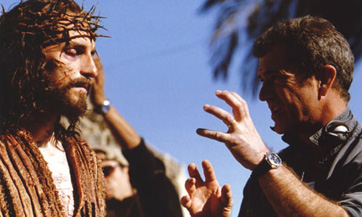|
|
What Went Right: The Passion of the ChristBy Shalimar SahotaMarch 22, 2012
Amid this, it’s believed that The New York Post had acquired a bootleg copy of the film during a preview screening. In November 2003, they thought it would be a good idea to screen it to a catholic priest, a rabbi, a professor of Christianity, one of their readers and their own critic, and then publish their thoughts. Only the Post reader was positive about the film, describing it as “riveting.” The result of this was an FBI investigation into how the New York Post obtained a bootleg copy of the film. In December 2003, The Vatican had requested to see the film. A private screening was held with former Pope John Paul II. Those in attendance appeared to approve of the film, but it was the reported endorsement from the Pope himself that made the headlines, with his opinion quoted as, “It is at it was.” Validation like this was exactly what the film needed. However, weeks later, this was suddenly denied, with the Pope’s secretary Archbishop Stanislaw Dziwisz saying, “The Holy Father told no one his opinion of the film.” On February 4, 2004, a few weeks before the film’s release, the news came that Gibson would remove the line that got the ADL so worked up. However, while the subtitle of this line had been removed, the words are still heard in Aramaic. Gibson said that he felt that the line referred to “all men,” not just Jews, and admitted that he felt strongly about keeping it in because he “didn't want to let someone else dictate what could or couldn’t be said.” Audiences were divided even before the film was released. Given the controversy that this raised, people could simply view the film and judge for themselves. While anyone going in with the full intention of looking for anti-Semitism would class it as such, Gibson defended himself and his film, stating that “Anti-Semitism is not only contrary to my personal beliefs, it is also contrary to the core message of my movie.”
[ View other columns by Shalimar Sahota ]
[ View other What Went Right columns ]
[ Email this column ]
|

|
|
|

|
Friday, November 1, 2024
© 2024 Box Office Prophets, a division of One Of Us, Inc.


